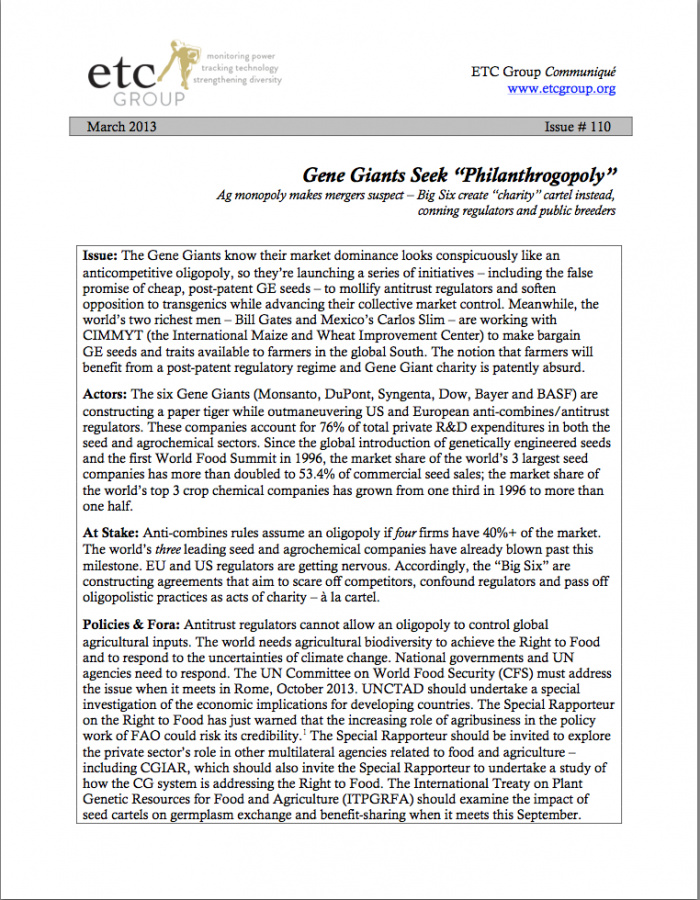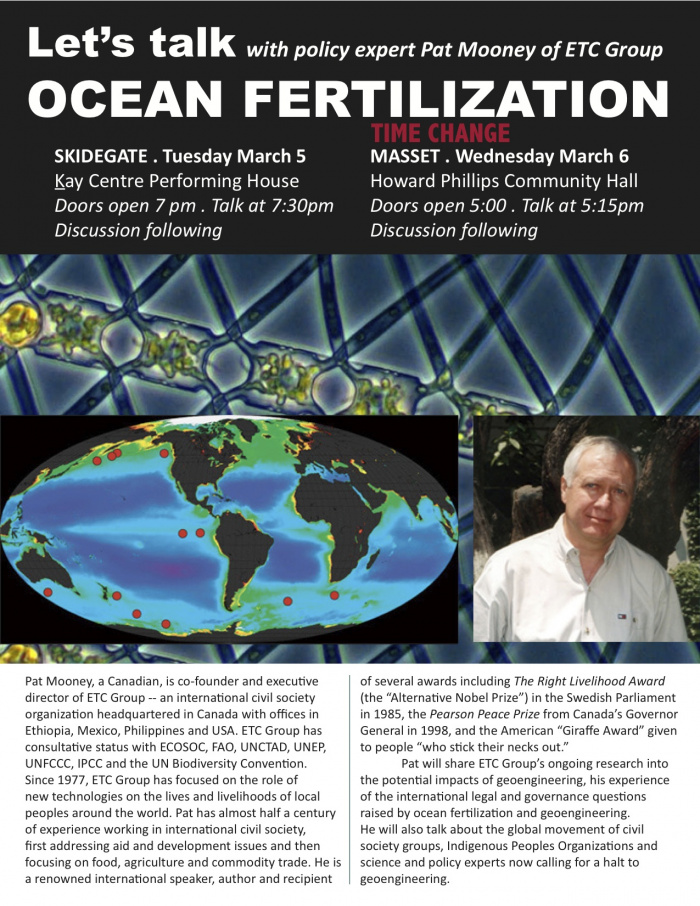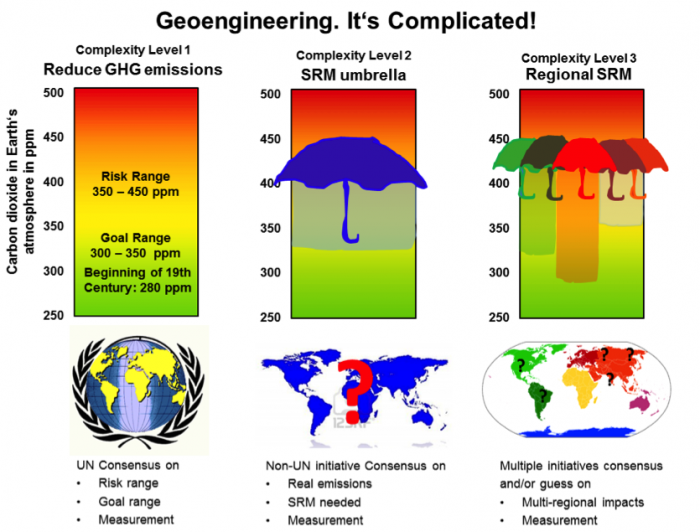Geoengineering – The Opium of the People? Pain-killer, Plane-chiller, Plane crasher
Submitted by ETC Group on
In the first two months of 2013, leading advocates of geoengineering have argued variously that researching geoengineering (as a Plan B to GHG emission cuts) is like helping a cancer patient manage pain while seeking a cure; or, that an accelerating gaggle of executive jets circling the equator could spray enough sulphuric acid in the stratosphere to keep the Earth’s thermostat within bounds; or, that a single island state could thumb its nose at the military might of the major powers and geoengineer the planet to its liking. So much lobbying and still months to go before the IPCC delivers its fifth assessment report – with an anticipated treatment of geoengineering.






